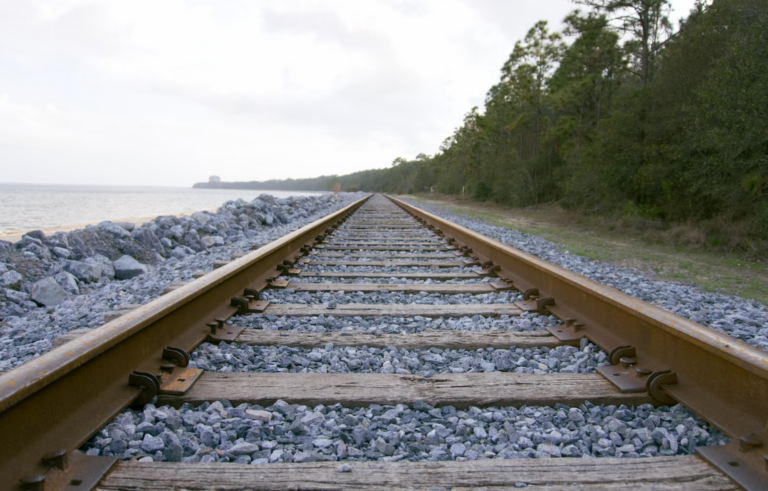Help Urge Congress to Pass the Railway Safety Act of 2023
By: Thomas Hynes

Earlier this year, a train derailed in East Palestine, Ohio, tragically unleashing several cars worth of hazardous and carcinogenic materials, including vinyl chloride, butyl acrylate, 2-ethylhexyl acrylate, and ethylene glycol monobutyl ether, into the surrounding water, air, and soil. Hazardous chemicals also spilled into the Ohio River, which travels through 14 states and provides drinking water to more than 5 million people. Due to decades of corporate lobbying and shortsighted regulatory reversals, unsafe conditions have been knowingly allowed to continue along the rail corridors in communities throughout the country.
Congress has the opportunity to pass the Railway Safety Act of 2023, a bipartisan legislation that could prevent future rail disasters and protect countless communities.
The derailment in East Palestine, Ohio did not cause any fatalities, but thousands of people had to be evacuated. Subsequent tests have uncovered carcinogenic chemicals near the derailment site, including dioxin, at levels hundreds of times greater than that which the U.S. Environmental Protection Agency (EPA) believes to pose a risk of causing cancer. Groundwater and soil have been contaminated. As local Three Rivers Waterkeeper’s Executive Director, Heather Hulton VanTassel, PhD told reporters, “We can see the contamination, we can smell the contamination, we can see it on the analytical results.”
The Norfolk Southern derailment caught a lot of headlines, but it is by no means the only train derailment to happen in the U.S. this year. It wasn’t even the first train to derail in Ohio this year. It has, however, highlighted the many known deficiencies in safety practices in the freight rail industry, particularly as it applies to the transportation of hazardous materials, which have gone unaddressed for years because companies like Norfolk Southern have lobbied against more stringent safety requirements.
Specifically, the Railway Safety Act will:
- Enhance safety procedures by creating new safety requirements and procedures for all trains carrying hazardous materials, including trains that are not subject to the current regulations for high-hazard flammable trains, a significant deficiency in the current rules.
- Prevent wheel bearing failures by establishing requirements for the installation, maintenance, and placement of wayside defect detectors, which are automated devices located on the side of tracks that monitor passing trains.
- Require two-person crews and reverse the railroads’ attempts to make crews smaller and instead ensure that sufficient, well-trained railroad staff are available for safe operation and response in the aftermath of any derailment.
- Make rail carriers pay for their wrongdoing instead of externalizing their cleanup costs on to the already affected communities by increasing the maximum fine that US Department of Transportation (DOT) can issue for safety violations from $225,000 to 1% of a railroads annual operating income.
- Support communities impacted by rail disasters by requiring railroads to fund the training of local law enforcement and emergency first responders on how best to handle a hazardous spill.
- Invest in the Next Generation of Safety Improvements by providing funding to the Federal Railroad Administration for research and development grants for wayside defect detectors, and for expenses related to the development of stronger, safer, tank cars, valves for tank cars, and other tank car safety features.
This legislation could go even further, as we have advocated for in the past, and address the antiquated, “Civil War-era braking systems” used by far too many rail carriers. Undoing the regulatory reversal set in motion by the previous administration in 2018 would allow for electronic brake systems to be made mandatory for all trains carrying hazardous and flammable materials., as recommended by the National Transportation Safety Board.
This train derailment was a catastrophe, but it was not necessarily an accident. In fact, it was probably preventable. We know the risks and consequences of corporate recklessness. However, we now have a chance to address these threats by urging Congress to act now. To do nothing would be a true tragedy.